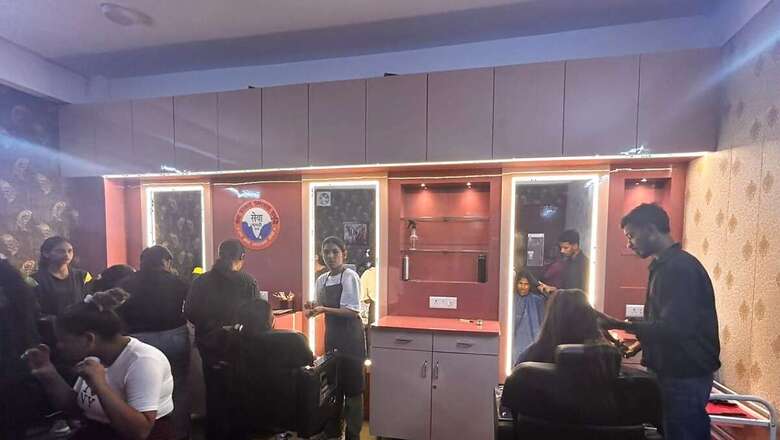
views
Mustafa Rahi, a 33-year-old driving instructor, is at the Kamla Market Police Station in Delhi every afternoon. He is not appearing in a case or serving as a witness; his mission is different. Mustafa trains a group of 30 women in a small room within the station premises. Three batches are held every day, and the course continues for three months.
To give them driving lessons, he uses a couple of cars parked in a nearby field. His students include women from the GB Road area, known for housing many of Delhi’s commercial sex workers.
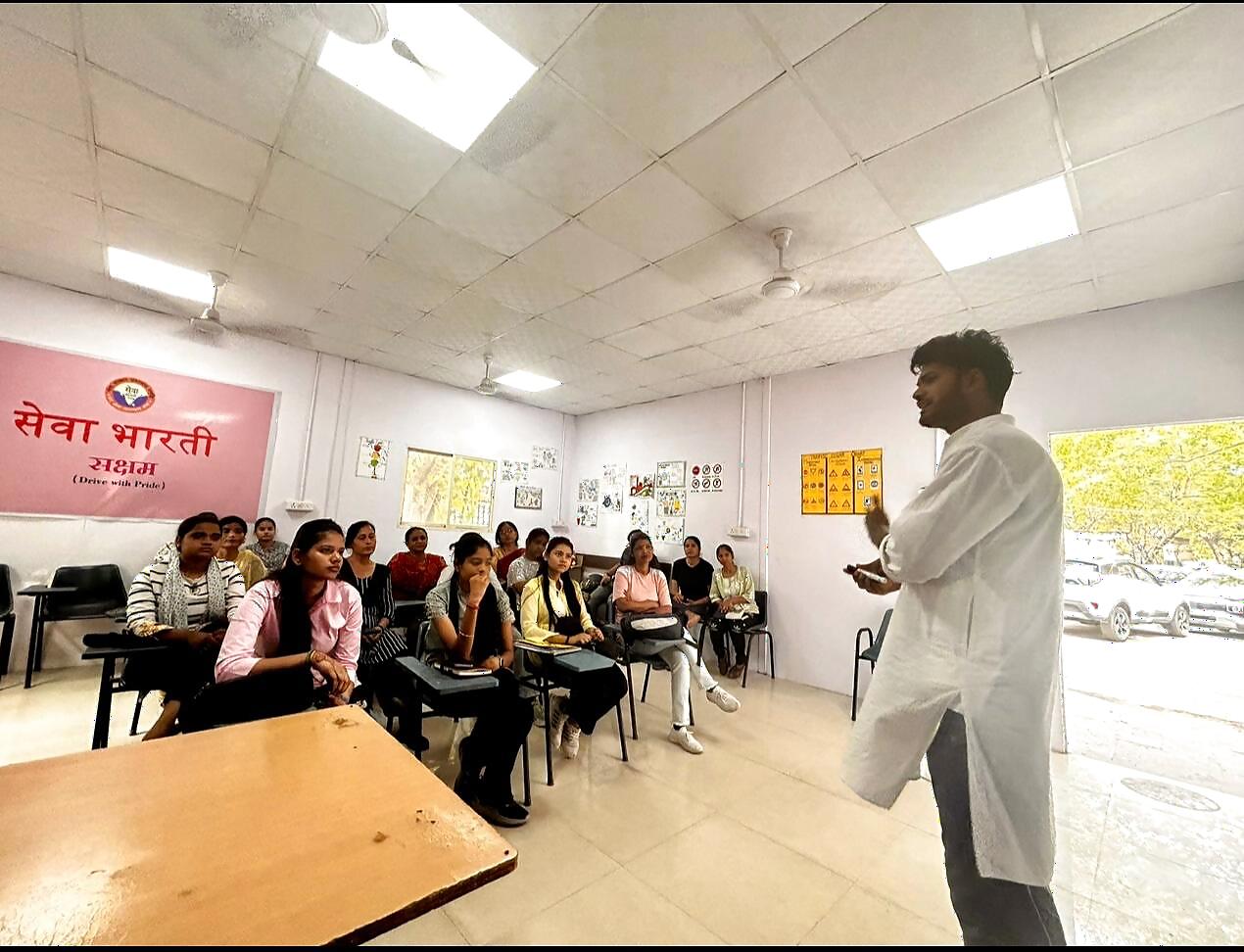
The routine is the same for Pinki Kumari Meena, a 28-year-old Assistant Professor of Political Science at Delhi University, who has also volunteered for this initiative.
Fashion designing schools, beauty parlours, driving training centres, sewing classes, a health clinic and a hostel for their children — this is how the RSS has been making an outreach among sex workers, many of whom it claims were converted by “their Muslim handlers”. The goal is to bring them back to the “mainstream”.
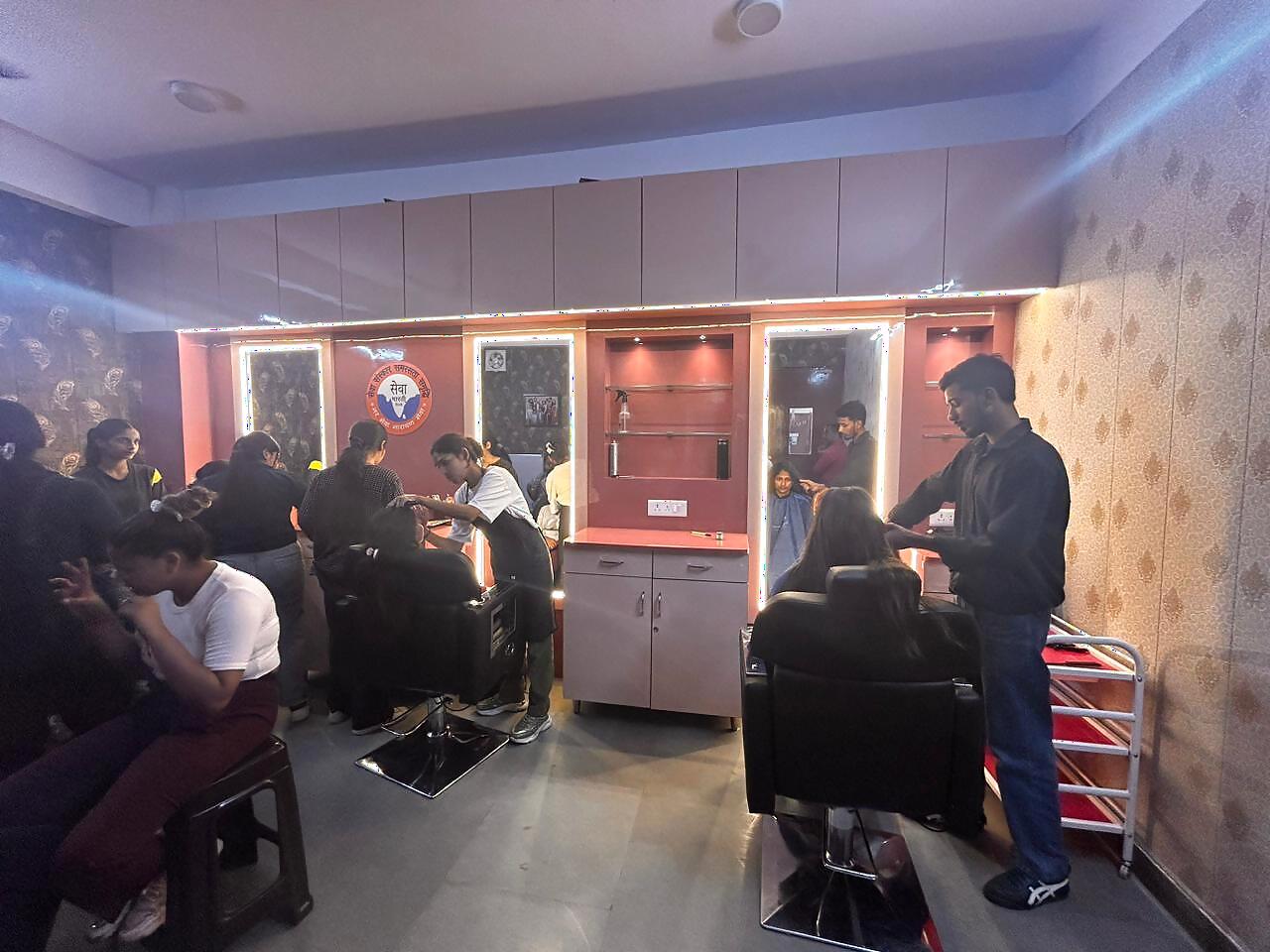
Multiple such initiatives, aimed at empowering sex workers and their children, are run by Sewa Bharti, an organization affiliated with the RSS and known for its social work programs. The programmes are running with the support of Delhi Police, said senior RSS members.
‘Aparajita’ to ‘Saksham’
Three years ago, in 2021, the Sewa Bharti started a hostel for the children of sex workers in South Delhi. They named the hostel ‘Aparajita’. It has 20 girls now, aged between five and 18. The hostel has a warden, attendants and cook who take care of the girls. They go to school and meet their mothers occasionally during vacation or festivities.
The initiatives, named ‘Aparajita’ (the hostel for children), ‘Saksham’ (driving and sewing centres), ‘Sopan’ (fashion designing school and beauty parlours) and ‘Utkarsh’ (health clinic), are part of the larger project that Sewa Bharti has taken up to make an inroad among sex workers, who live in and around Delhi’s GB road area.
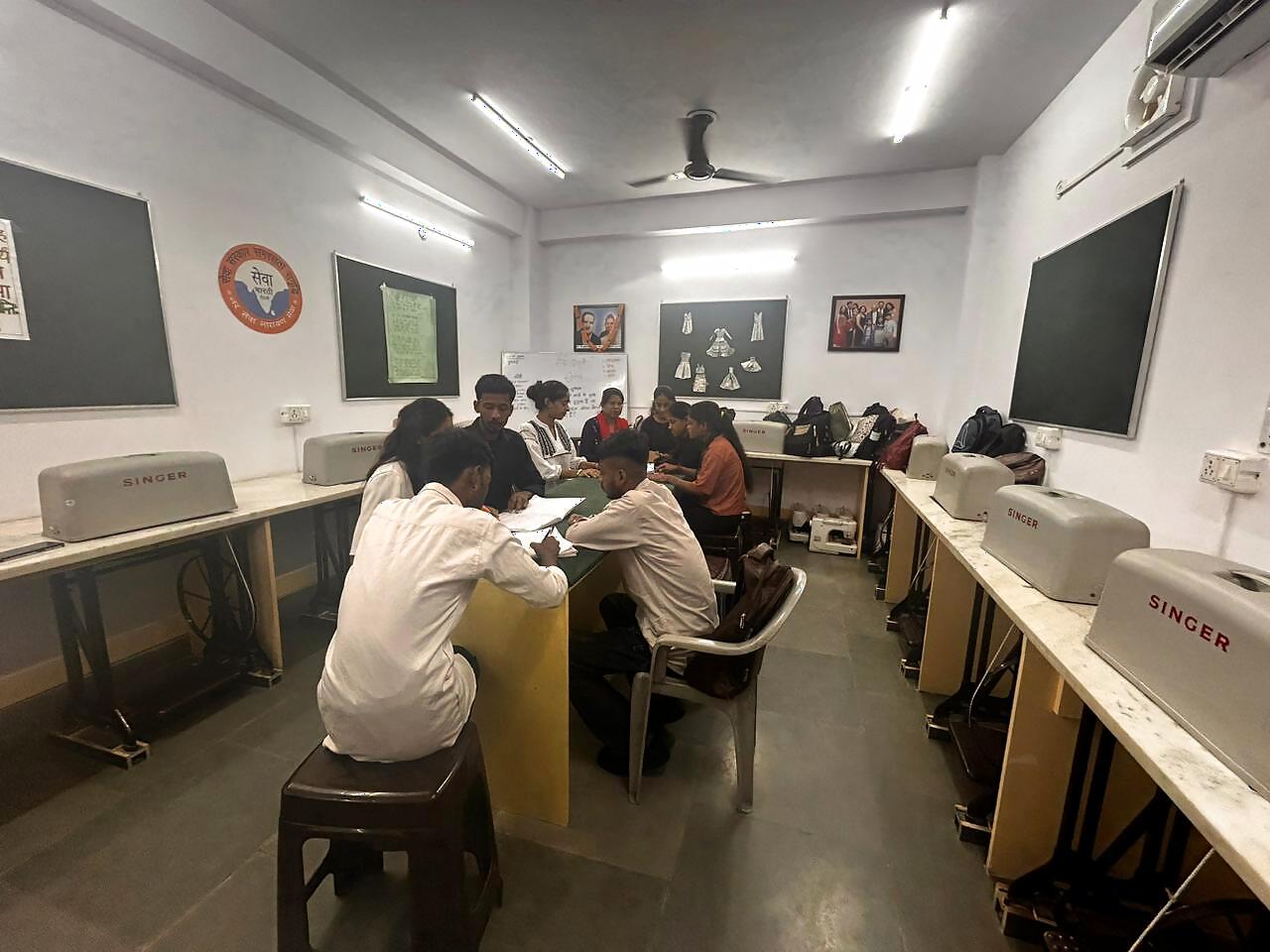
“We are working to bring them and their children back to the mainstream. We are trying to provide them with the basic facilities like health and education to which they did not have access. We are also trying to create means for them to survive and feel empowered,” said Sushil Gupta, General Secretary, Sewa Bharti.
The projects are primarily supervised by four senior professionals — Sabita Narang, a senior professional in a foreign embassy; Sangeeta Tyagi, a senior gynecologist; Vandana Vats, an advocate; and Dr Pushpa Mishra, senior gynecologist from Maulana Azad Medical College. Dr Mishra is in-charge of the project. The free-of-cost clinic and medical store are run by Sewa Bharti in association with the National Medico Organisation, an RSS-affiliated organization for medical and health professionals.
‘Sopan’ and ‘Baal Bari’
Behind the Manila Police Chowki at GB Road, Sewa Bharti runs a ‘Baal Bari’, or coaching classes for children. Additionally, a parlour and fashion designing school are operated by three dedicated professionals who left their private sector jobs to join this initiative.
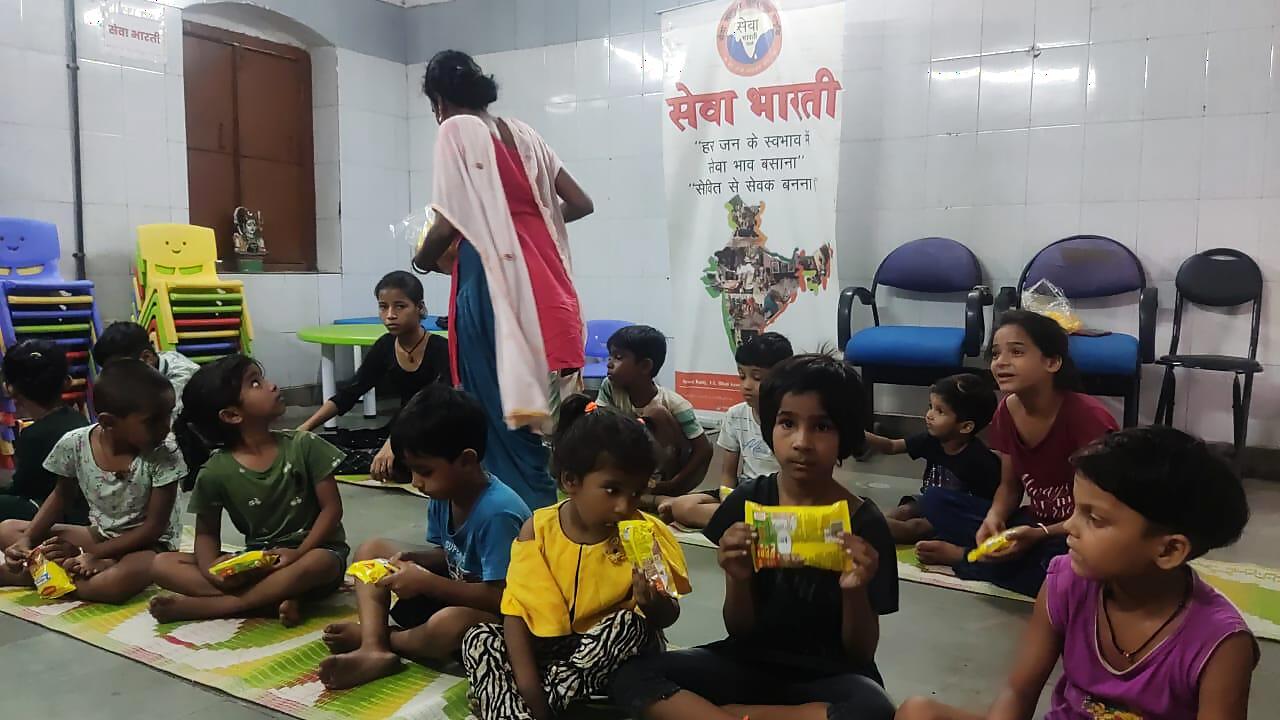
Mohita and Navneet, two young women, along with Atul, a young professional, all quit their jobs to contribute to these efforts. They provide training in batches, imparting valuable skills and knowledge to those in need.
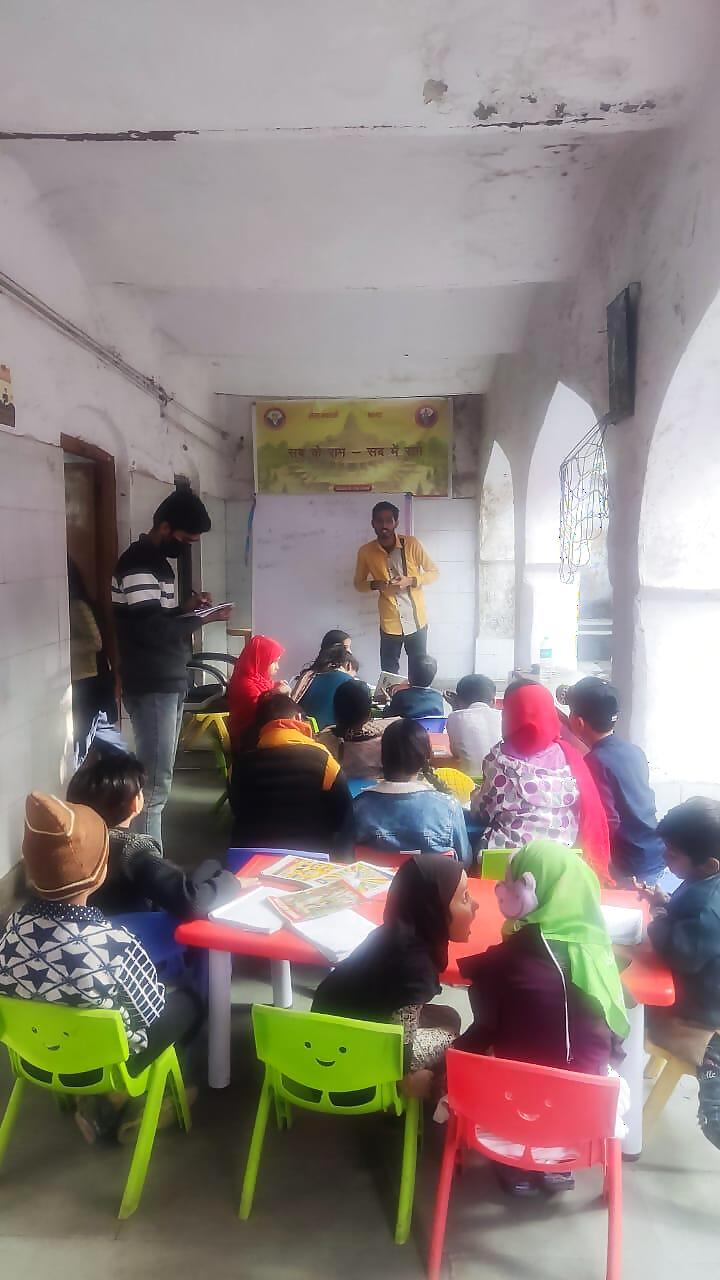
“We often visit the quarters at GB Road to convince them (sex workers) to send their kids to the training centre. We encourage them to join and learn. Some of them have joined, some are still resisting. For them, it is difficult, but we will keep trying,” said Mohita.
Breaking the ‘Cycle’
According to a survey conducted by the organisation in 2021, the area has around 2,830 sex workers who, according to the group, were “trapped” by “operators” or trafficked to Delhi’s red-light districts from several states.
“Most of these women are Hindus, who were later converted by the Muslim operators. They do not allow their children to come out of the ecosystem. They groom the girls so that they can bring them into prostitution and make the boys pimps like them. It is a vicious cycle,” said a senior functionary of the organisation, who works with them directly and does not want to be named.
“We want to break this vicious cycle. We want them to join the mainstream, instead of keeping them in an isolated bubble. That is why we did not restrict the training centres or the clinic specifically for a community. They are open for all. The members of Valmiki (Dalit) Samaj have also been working with us and participating in the programmes,” he added.
Delhi Police and some senior officers have been supporting such initiatives and helping them run in the area, added another senior RSS functionary. Alok Kumar, an IPS officer of 1996 batch (AGMUT cadre), said that the Sewa Bharti came with the proposals when he was the joint commissioner of Delhi Police.
“I liked the idea. I also wanted the children to be out of that ecosystem, get proper education and be empowered. They started with the hostel for the kids,” Kumar told News18.



















Comments
0 comment